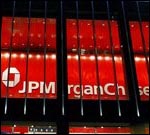 By now you’ve probably read the JPMorgan Chase Bank (“JPMC”) agreed to pay to the Office of Foreign Assets Control (“OFAC”) the whopping amount of $88.3 million to settle charges that it violated just about every sanctions program on OFAC’s books. This enormous fine is due, it would appear, in large measure to JPMC not taking OFAC’s rules or its investigatory process terribly seriously.
By now you’ve probably read the JPMorgan Chase Bank (“JPMC”) agreed to pay to the Office of Foreign Assets Control (“OFAC”) the whopping amount of $88.3 million to settle charges that it violated just about every sanctions program on OFAC’s books. This enormous fine is due, it would appear, in large measure to JPMC not taking OFAC’s rules or its investigatory process terribly seriously.
Most of the agreed fine is based on $178.5 million in wire transfers to Cuba. OFAC emphasized that, after a November 2005 internal investigation that revealed that transfers made through a correspondent account involved Cuban funds, JPMC took no steps to prevent further transfers involving Cuban property. The OFAC report does not state whether or not these further transfers involved the same correspondent account or the same Cuban nationals.
JPMC is also alleged to have made a loan to a bank issuing a letter of credit for a transaction that was being shipped on a blocked vessel affiliated with the Islamic Republic of Iran Shipping Lines. At some point, JPMC determined that the loan was likely a violation and decided to file a voluntary disclosure. That apparently did not do the bank too much good because OFAC pointed out that the bank dawdled for four months in getting the voluntary disclosure on file:
Although JPMC supervisors and managers determined that this trade loan was likely an apparent violation of the WMDPSR [Weapons of Mass Destruction Proliferators Sanctions Regulations] and, in late December 2009, decided to submit a voluntary self-disclosure to OFAC, JPMC did not mail its voluntary self-disclosure until March 2010, three days prior to the date on which JPMC received repayment for the loan without OFAC guidance or authorization. JPMC also failed to respond promptly and completely to an OFAC administrative subpoena seeking information on this transaction.
Four months, which may be a short period as measured in corporate time, can hardly be called much of a delay on OFAC time given that it may take the agency six months or more to respond to simple requests. Still, the lesson here is that initial notifications should be filed with OFAC right away.
The third thing that ticked off OFAC was the way JPMC dealt with OFAC’s investigation of a JPMC wire that referenced Khartoum:
In response to this subpoena and a subsequent communication, JPMC compliance management failed to produce several responsive documents in JPMC’s possession, and repeatedly stated that JPMC had no additional responsive documents. OFAC ultimately provided JPMC with a list of multiple responsive documents that OFAC had reason to believe were in JPMC’s possession based on communications with a third-party financial institution. This prompted JPMC to correct its prior statements that the bank possessed no additional responsive documents and to produce more than 20 responsive documents.
What might have been a simple matter to resolve was complicated here by JPMC’s response to the subpoena. Suffice it to say, it’s never a good idea to say that no documents exist unless you are absolutely certain that no documents exist.
 Permalink
Permalink
Copyright © 2011 Clif Burns. All Rights Reserved.
(No republication, syndication or use permitted without my consent.)

 Posted by
Posted by  Category:
Category: 

